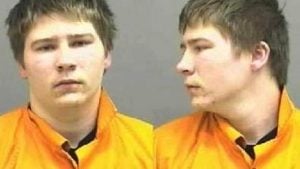
Brendan Dassey
[F]alse confessions happen. They happen all the time. Brendan [Dassey] is not an anomaly. There’s a growing recognition among law enforcement organizations that the problem of false confessions is real. Some prosecutors have come forward to say, ‘We want to convict the right people so we need to take steps to prevent false confessions.’ ‘Making a Murderer,’ of course, pushed the notion of false confessions into the popular consciousness. I hope there’s a groundswell of support for the notion that the way we question kids has got to change.
— Professor Laura Nirider, co-director of The Center for Wrongful Convictions of Youth at Northwestern University Pritzker School of Law, commenting on false confessions, juvenile interrogations, and the effects of “Making a Murderer” subject Brendan Dassey’s conviction for the murder of Teresa Halbach getting overturned (after Dassey spent about a decade behind bars). Nirider began working on Dassey’s case when she was still a law student.

5 Tips For Proving Your Legal Department’s Value
Join our expert panel on March 3rd at 1pm ET to explore actionable, emerging ways you can gather and proactively share the data that demonstrates the impact of your work.
Staci Zaretsky is an editor at Above the Law. Feel free to email her with any tips, questions, or comments. Follow her on Twitter or connect with her on LinkedIn.